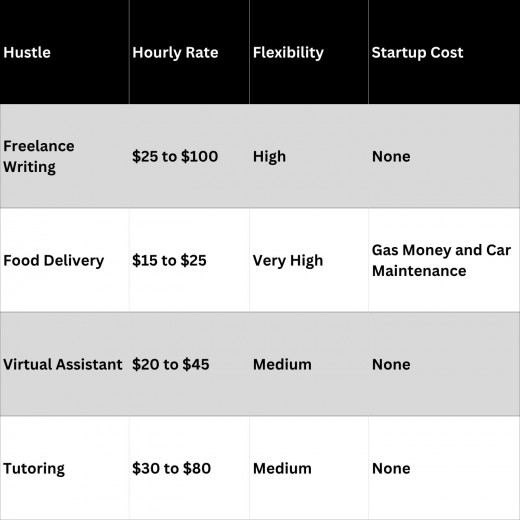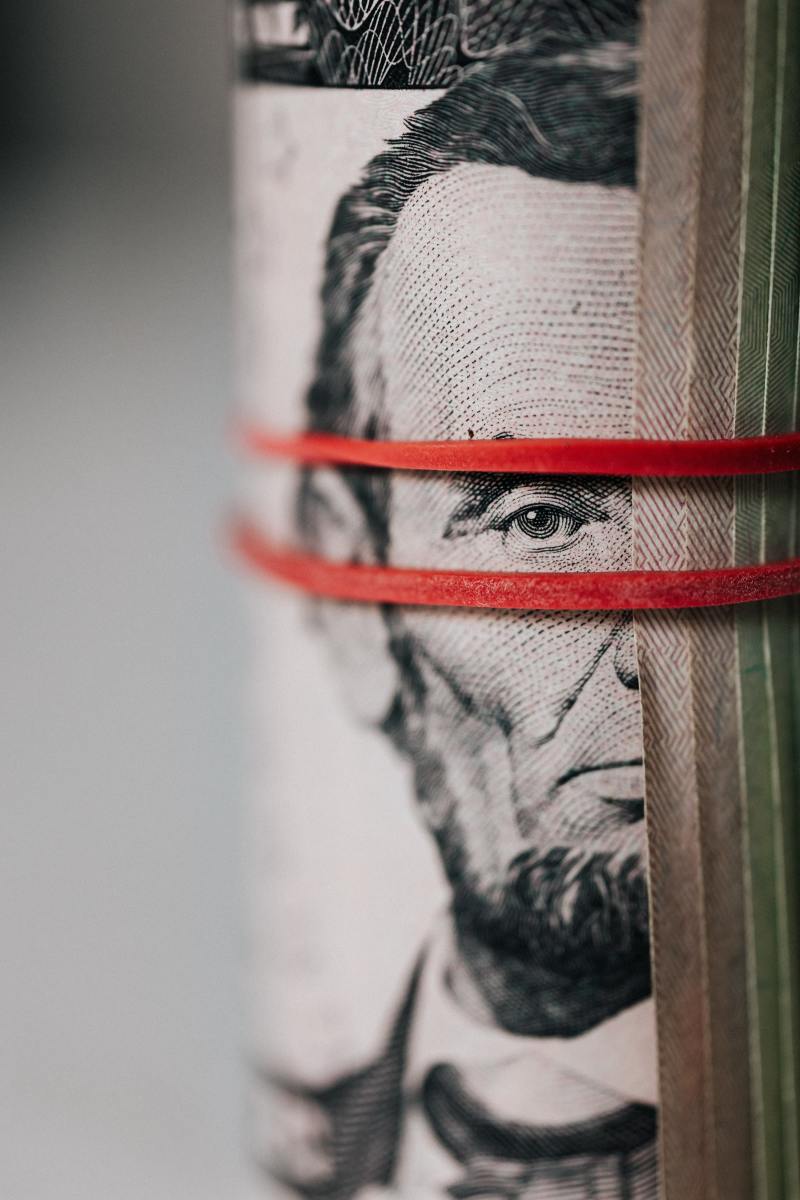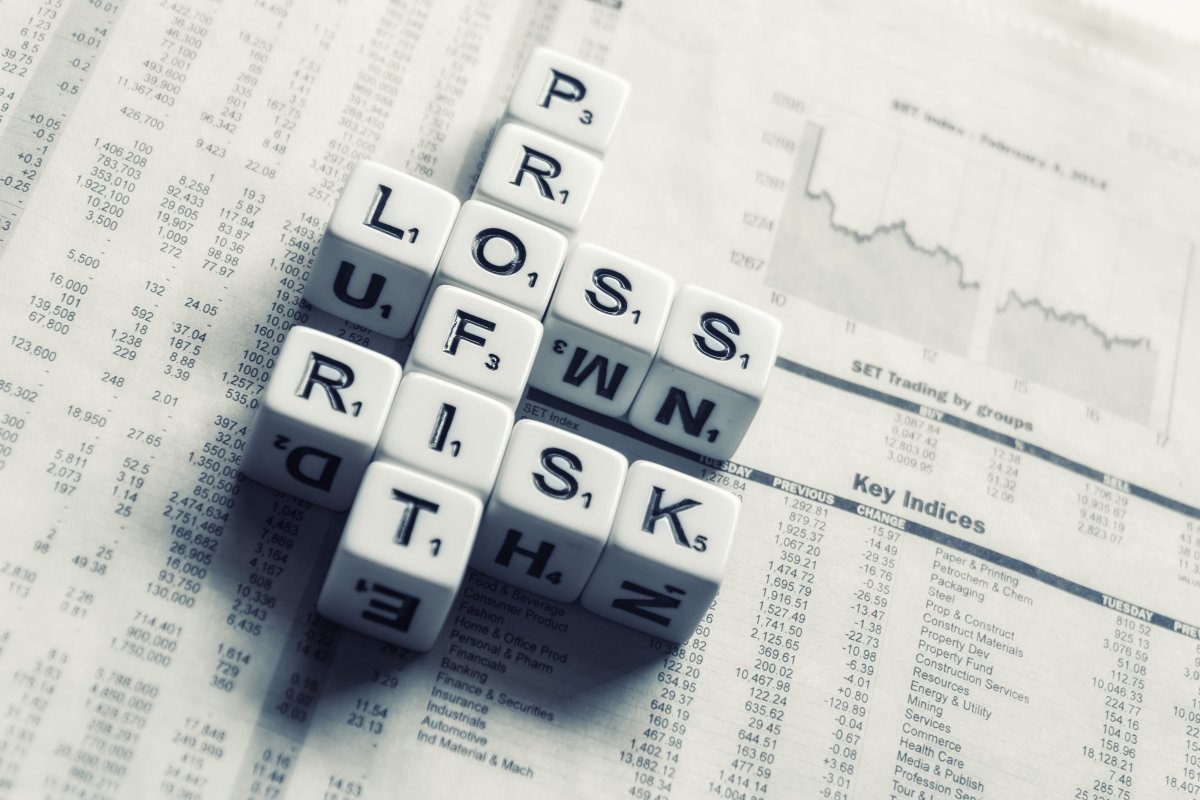Why Being Single Is the Best Time to Build Your Emergency Fund

Use Your Single Advantage to Build an Emergency Fund
Being single gives you a rare financial advantage that your friends and parents who are in a relationship don't have.
You have complete control over your finances with minimal obligations.
Stay single so that you can achieve financial security and not have to worry about your finances when you're older.
An emergency fund is your crucial first step toward achieving financial
Your rainy day fund will help you to take more career risks and protect you financially from financial emergencies.
Here's why being single is the best time to build your emergency fund!
Why Emergencies are Inevitable
You're going to have medical, car, work, or family emergencies. You can't control what happens to you.
Your health deteriorates. You get in a car accident. Your employer fires you.
I've had three eye surgeries from the ages of 25 to 32. My vision issues limit the type of work I can do.
The Harsh Reality of Adult Life
These are five common emergencies that derail people financially:
- Your car transmission fails and costs you $250 to repair.
- You break your wrist and have a $5,000 deductible for your insurance.
- Your company fires you when it's laying people off.
- Your apartment floods (this happened to me in college), and you need to replace your furniture quickly while staying in a hotel.
- You have an unexpected medical emergency that prevents you from working.
Many Americans don't have savings to cover an emergency $500 expense
It's dangerous not to have emergency savings. You're vulnerable to having to borrow money, which can lead to debt.
Do You Know What Percent of Americans can't Cover a $500 Emergency?
view quiz statisticsThe Domino Effect of Being Unprepared
Without savings, a domino effect happens that goes like this:
- You put emergencies on credit cards with an average APR of 24%.
- The debt grows rapidly with interest.
- Your credit score drops.
- Future loans and rentals become harder.
- Financial anxiety negatively affects your mental and physical health, as well as your ability to make informed decisions.
- You take worse jobs to stay afloat.
Once you get stuck in low-paying jobs, you'll never be able to get out of debt. You'll be in debt for your entire life.

Psychological Benefits of an Emergency Fund
Having an emergency fund:
- Reduces your daily anxiety about money
- Gives you confidence to negotiate a raise with your employer
- Let you walk away from toxic work situations
- Provides you with mental bandwidth to focus on career growth
- Provides you with seed money to start an online business
You'll have significantly higher life satisfaction with an emergency fund.
Your Step-by-Step Emergency Fund Blueprint
If you have no idea where to start with creating an emergency fund, do not worry! I'll outline three types of emergency funds to work on building.
1. The Starter Fund
Your first goal is to save $1,000 in a high-yielding savings account.
$1,000 will help you cover the most common emergencies.
Here are three ways you can start your emergency fund fast:
The 30-Day Sprint: Temporarily cut all non-essential purchases, such as dining out, happy hours, and subscriptions, and redirect that money toward building your emergency savings.
Sell Your Stuff: The average person has roughly $2,000 worth of unused items at home. Organize and sell the items you don't need on Facebook Marketplace, OfferUp, Poshmark, or at a garage sale.
Gig Economy Boost: Driving for Uber Eats for 10 hours a week. Dogsit on Rover. I was a Grubhub delivery driver in college. You could earn an extra $500 to $1,000 a month.
Open a separate high-yield savings account to avoid the temptation to spend the money. Vio Bank, Ally, and Marcus offer higher rates for savings and money market accounts to help you grow your emergency fund faster.
2. The Full Safety Net
Your goal is for your emergency fund to last you for at least twelve months. Your emergency fund is your personal safety net to fall back on. You may be unable to find a job or face a medical emergency.
Calculate your full safety net for your emergency fund by:
- Tracking your last three months of essential spending (rent, food, utilities, insurance, transportation, and minimum debt payments).
- Averaging it out over twelve months.
- Multiply your final number by six.
You will then determine a final target amount to work toward for your emergency fund.
3. The Advanced Protection Fund
Once your basic emergency fund is set:
- Create a second emergency fund to help cover major medical and life emergencies, such as surgeries, health issues, or extended periods of unemployment.
- Consider short-term disability insurance as an additional protection option.
- Start investing your additional savings in the stock market to earn higher returns and build wealth more quickly.
- Set up a health savings account (HSA) to help you cover the costs of any medical emergencies.
- Pay off your remaining debt as fast as possible.
The more money you have saved and invested, the more financially secure you will be. Financial security boosts your confidence and helps you achieve your financial objectives.
Emergency Fund Poll
What level of emergency fund are youg aiming to build?
How to Grow Your Emergency Fund Faster
If you want to grow your emergency fund faster, you can!
These are three strategies to get your safety net faster:
The 50/50 Hack: After covering your necessities, allocate 50% of your remaining money to building your emergency savings account. Avoid your wants until you've fully funded your emergency fund.
Automated Escalation: Set your bank to increase transfers by $10 each month to your high-yielding savings account. Watch your emergency fund grow faster as you escalate the amount each month by adding $10 more each month.
Windfall Strategy: Direct your tax refunds, bonuses, inheritance, birthday money, overtime pay, and any extra money to your emergency savings account.
Smart Savings Tactics Most People Miss
Many people overlook these strategic tactics, which can cause them to take longer to build an emergency fund. These are strategies you can implement to make your emergency fund grow more quickly.
The Hidden Money Pool in Your Budget
Most budgets leak hundreds monthly through:
- Subscription Creep: $5 a month, $10 a month, $15 a month subscriptions all add up.
- Food Waste: The average person wastes nearly $2,000 a year on uneaten food.
- Insurance Overpayments: You could save an extra $1,000 a year by shopping around for health and car insurance that fit your needs rather than overspending on a plan that provides more than you need.
Action Plan
- Use apps like Rocket Money to find and cancel your unused subscriptions.
- Implement meal planning to cut your grocery bills by 30%.
- Compare your insurance rates annually.
Implement this action plan starting today.
Taking action today will prevent you from procrastinating on building your emergency fund.
Combine a flexible side gig with a higher-earning skill option, such as freelancing.
The Startup Matrix

Psychological Tricks That Make Saving Easier
Psychological techniques can incentivize you to build your emergency fund more quickly.
- Name Your Fund: "Freedom Fund" or "Peace of Mind Account" makes it more motivating.
- Visual Tracking: A thermometer chart you color in as you reach savings goals.
- Small Wins: Celebrate every $500 milestone.
- Accountability: Share your goals with a money-savvy friend.
Common Roadblocks (and how to Overcome Them)
You're going to give yourself excuses for why you can't save. You'll need to overcome these roadblocks to build your emergency fund.
"I Don't Make Enough to Save"
You can afford to save if you're able to afford a smartphone and a Netflix subscription. You'll need to change your priorities.
Solution:
- Start by saving $5 a day to accumulate a total of $150 per month.
- Use cashback apps like Rakuten on all purchases.
- Try to spend no money on your weekends.
"I Keep Dipping Into my Savings"
You should only use your savings for emergencies or if you plan to invest a portion of your savings to grow it faster by investing in the stock market.
Behavior Fixes:
- Make withdrawals inconvenient by using a different bank than the one you use for your checking account.
- Implement a 24-hour waiting period before accessing any of your funds.
- Ask yourself: "Is this a true emergency or just something that I want?"
Work on making minor changes to your spending habits. You'll start to have money in your emergency fund.
"Inflation Makes Saving Pointless"
My grandpa told me when I was in junior high that the biggest enemy to wealth-building is inflation. I didn't know what he meant until I left college and entered the real world by working at a grocery store. My paycheck never went far enough.
You have ways to beat inflation, but you need to be willing to take smart risks.
Smart Strategy:
- Keep your first $1,000 liquid in a high-yielding savings or money market account.
- Direct your additional savings toward maxing out a Roth IRA for retirement. Buy a combination of index fund and individual stocks to have in your Roth IRA.
- Come up with a stock market investing strategy based on your risk tolerance.
The real inflation rate is between 10% and 15%. You need your money to at least earn 15% to stop losing money to inflation.
The Life-Changing Benefits of Financial Security
Financial security lets you take more calculated risks with your career and investments, allowing you to build wealth more quickly.
Financial security offers you the freedom to make more informed financial decisions.
Career Freedom
An emergency fund gives you career freedom. The more money you save in your emergency fund, the more freedom you have to take career risks.
With a minimum of twelve months' expenses saved:
- You can leave a toxic job without worry.
- You have the leverage to negotiate a better pay offer with your employer.
- You can take calculated career risks that pay off in the long term.
- You can pursue certifications to earn a higher income.
- You can upskill by learning in-demand, high-paying skills, allowing you to make a career change or advance in your current field.
Start a Business
You have money saved that can help you start your own business.
Your emergency fund helps:
- Fund your business without having to take out a business bank loan.
- Work to build the tools that you need from day one to grow your business faster: a website, branding, and fund a business bank account.
- Startup capital to invest in your business while you work to create your first product and service for your customers.
Health Perks
An emergency fund helps you worry less about not having money to cover a financial emergency.
Less financial stress means:
- Better sleep
- Lower blood pressure
- Fewer stress-related illnesses

Summary
Building your emergency fund now will lower your financial anxiety and help you build wealth..
An emergency fund is your first critical step toward financial freedom.
The single life offers a unique opportunity to establish a foundation for lifelong security.
Your Action Plan:
- Open a dedicated high-yielding savings or money market account today.
- Reach your first $1,000 savings goal.
- Automate weekly transfers of a minimum of $10.
- Select one spending area to optimize, allowing you to save additional money.
- Choose one income-boosting activity to help you earn more.
Start taking action today by following the five-step plan and the strategies in this article to help you build an emergency fund.
Read Next
Building An Emergency Fund: The Secret No One Tells You!
Emergency Fund Poll
Are you going to take action to start building an emergency fund?
This article is accurate and true to the best of the author’s knowledge. Content is for informational or entertainment purposes only and does not substitute for personal counsel or professional advice in business, financial, legal, or technical matters.
© 2025 James Bollen








